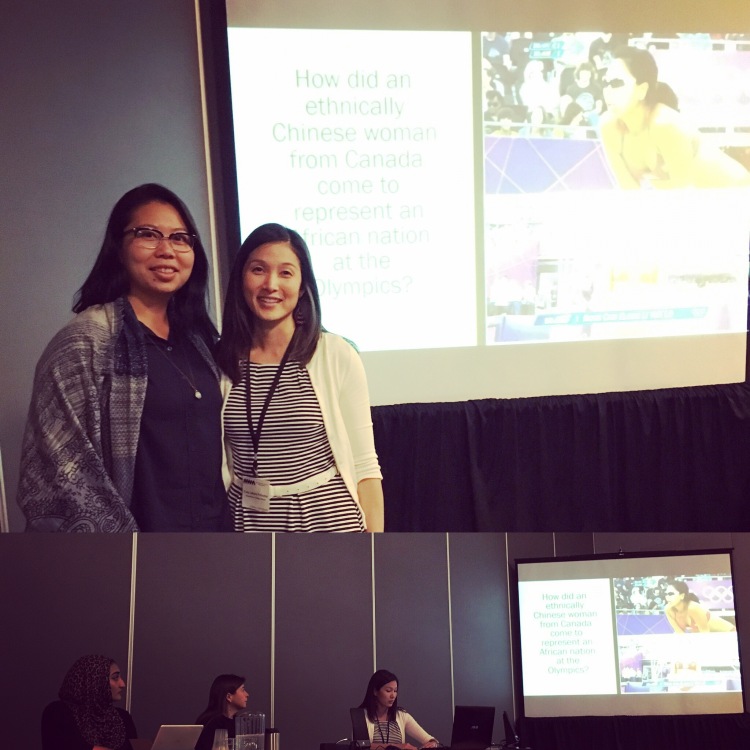 Earlier this month I presented a small part of my research at the National Women’s Studies Association conference in Montreal, Canada. The conference took place in the wake of the devastating election results.
Earlier this month I presented a small part of my research at the National Women’s Studies Association conference in Montreal, Canada. The conference took place in the wake of the devastating election results.
The timing of the conference couldn’t have been better. I needed to get out of D.C. and not worry about turning on the T.V. just to hear, repetitively, that Trump will be the next president. The election results felt personal, as it did for so many of us who are marginalized in America and for those who happen to give a damn about social justice and have made a life and career out of it.
Despite heading to Montreal with a flurry of gray clouds over me, I looked forward to meeting up with Elodie—my “research subject” and extraordinary friend. But, I felt nervous about giving my presentation, “The Right Kind of Other: Multicultural Imperialism and Flexible Citizenship in Women’s Olympic Beach Volleyball.”
I was going to talk about Elodie’s relative privilege over other African competitors, who she beat out for a berth to the 2012 Olympics. I had also prepared 13 PowerPoint slides with large pictures of her…in a bikini! This was not the glorious talk she perhaps imagined I’d give one day when I first asked if I could write about her life. The talk was physically and personally revealing of her.
It wasn’t until the final sentence of my talk that I felt, versus knew, the enormity of what I was actually doing. Holding back tears of gratitude, I read aloud:
“I have to thank Elodie, who has graciously allowed me to put under an academic microscope, her complex and beautiful life. Admitting one’s privilege is exceptionally difficult. I am profoundly impressed and humbled by Elodie’s openness to speak about her systemic privilege. I am thankful for and inspired by her difficult reflections and honesty.”
Elodie was in the audience and she sat there listening to my critical observations of her journey to the Olympics. She flew into Montreal to support me. She gave me permission to write about her and her family’s life. She trusted me to tell her story (the good, bad, and complicated).
I’m overwhelmed by her generosity in sharing her life for my academic career.
For a brief moment during the conference I panicked over the risk I was putting our friendship in. And then Elodie suggested we go get foot reflexology massages, eat Chinese food, and watch a movie at some point that weekend. We hadn’t just hung out, the two of us, since my son was born a year and a half ago.
 As we walked the streets of Montreal, we talked about our fears, hopes, and dreams, just like we had done growing up in downtown Toronto.
As we walked the streets of Montreal, we talked about our fears, hopes, and dreams, just like we had done growing up in downtown Toronto.
It’s intense, doing a dissertation largely based on one of my best friends’ life. It’s a massive and delicate responsibility. And yet, through this experience I’ve been able to have conversations with Elodie I may not have had otherwise. As an added bonus I’m able to share with her the frustrating, arduous, and exciting process of doing academic work, which so few people outside of academia know or appreciate. This experience has been personally and professionally enriching so far.
With 2016 coming to an end, I’m looking forward to phase two of “dissertating”—travel for research in 2017. I’ll be hitting up archives at the British Library in London, England, the Olympic Studies Centre in Lausanne, Switzerland, and visiting archives and Elodie’s family in Mauritius. Elodie plans to join me for parts of these travels, so stay tuned!

 The iconic
The iconic 









